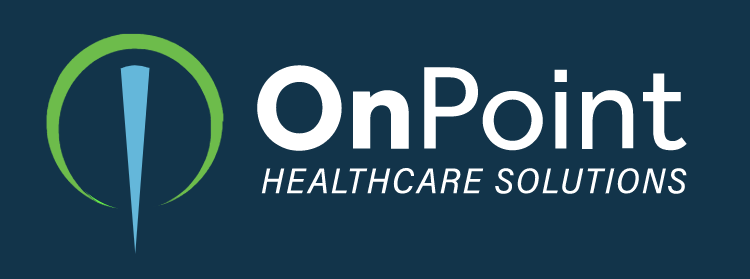Job Description
Under the general direction of the HIM Inpatient Coding Supervisor the incumbent is required to review medical record documentation for all ED patient encounters, identify all billable services and discuss with the physician/provider when discrepancies occur between coding and documentation. Responsibilities include collecting and analyzing documentation, assigning appropriate CPT evaluation/management and procedure codes, ICD-10 diagnosis and APC general ledger codes in order to generate billing for services rendered. Prepares and enters charges to the online charge entry systems. Incumbent will ensure compliance to all federal, state and carrier specific rules, regulations and requirements, related to professional fee and technical services are followed.Minimum Qualifications - For full consideration, applicants are encouraged to upload license and/or certification if required of the position
• American Health Information Management Association (AHIMA) Certified Coding Specialist-Physician-based (CCS-P) or Certified Coding Specialist (CSS), or American Association of Professional Coders (AAPC) Certified Professional Coder (CPC) Certification
• American Health Information Management Association (AHIMA) Registered Health Information Technician (RHIT) or Registered Health Information Administrator (RHIA) certification may also be appropriate in lieu of CCS-P, CCS or CPC certifications.
• Experience with and instructional notations and conventions of ICD-10-CM, APC and CPT classification system.
• Several years ED Pro Fee and Facility Coding
• Ability to read handwritten and transcribed documents in the medical record, interpret information, and enter complete and accurate data into an on-line encoding system.
• Comprehensive knowledge of medical diagnostic and procedural terminology required.
• College level understanding of disease processes, anatomy and physiology necessary to assign accurate codes using the ICD-10 CM and CPT coding conventions.
• Knowledge of Federal, State and local government regulations and requirements which pertain to patient care information and requirements for a complete medical record for deficiency chart analysis.
• Knowledge of third-party payer reimbursement requirements and an understanding of multi-medical specialties, encounters, and procedures in acute care, EDand ambulatory care settings.
• Ability to communicate technical and clinical information concerning patient care and classification systems at different levels, i.e. physicians, ancillary, and administrative personnel.
• Ability to apply policies and procedures regarding data security and confidentiality to protect the inappropriate release of information.
• Ability to exercise judgement with minimal supervision.
• Ability to be flexible & follow many different guidelines that change annually.
• Ability to assume responsibility for compilation of clinical data related to inpatient and outpatient encounters including diagnoses, procedures, physicians and services.
• Remains current with periodic updates of all coding manuals and guidelines in accordance with Federal, State and local regulations.
• Ability to manage time schedules, deadlines, multiple requests/priorities and to maintain productivity.
• PHYSICAL SKILLS REQUIRED:Ability to handle the stress and pressures of a job where there is noise from conversation and office machines.
• Ability to read text for long period of time from a book, medical record and/or computer terminal.
• Must be able to work occasional overtime.
• Knowledge of and ability to follow the detailed guidelines related to their use in assigning single, and sequencing multiple, diagnosis and procedure codes for appropriate reimbursements and data collection.
Key Responsibilities
• 90% - REVIEWS, ABSTRACTS AND CODES INPATIENT,OUTPATIENT,AND AMBULATORY SURGERY RECORDS TO ENSURE DATA QUALITY AND TO OPTIMIZE REIMBURSEMENT
• 5% - PROVIDE SUPPORT TO THE CODING UNIT
• 5% - PARTICIPATES IN EDUCATIONAL EXPERIENCES CONCERNING CODING AND ABSTRACTING ISSUES
Department Overview
The Health Information Management (HIM) Department is a critical part of the healthcare organization, dedicated to improving patient care, supporting research, and facilitating education through the efficient management of medical records and clinical databases. The department, which consists of over 200 Full-Time Equivalents (FTEs) across diverse units, is responsible for ensuring the accuracy, accessibility, and compliance of patient information, which is crucial for clinical decision-making, billing accuracy, and regulatory adherence.
The department includes key groups such as Inpatient and Outpatient Clinical Documentation Integrity (IP/OP CDI), All Coding Operations, the CDI Coding Quality Analyst Group, the HIM Clinical Analyst Team, and the Provider Advocate Team. Each of these teams plays a specialized role in supporting the organization's health information needs.
IP/OP CDI focuses on ensuring that clinical documentation accurately reflects the complexity and severity of patient care, contributing to appropriate coding, billing, and reimbursement. All of Coding Operations ensures that all patient records are coded accurately according to industry standards and regulatory requirements, supporting billing processes and ensuring compliance. The CDI Coding Quality Analyst Group is responsible for monitoring and improving the quality of clinical documentation and coding processes to ensure accuracy and efficiency. The HIM Clinical Analyst Team focuses on the analysis and optimization of clinical data systems, ensuring that health information is easily accessible and accurate across the organization in collaboration with other department data analysts. The Provider Advocate Team collaborates directly with physicians and other clinical staff to ensure accurate documentation and smooth integration of clinical data into patient records.
Together, these teams ensure that the department not only supports day-to-day clinical operations but also plays a key role in broader strategic initiatives. The HIM Department ensures that data integrity is maintained, healthcare regulations are followed, and operational workflows are optimized to support patient care and organizational efficiency. Through this multidisciplinary approach, the HIM Department significantly contributes to the organization's mission of delivering high-quality healthcare.
